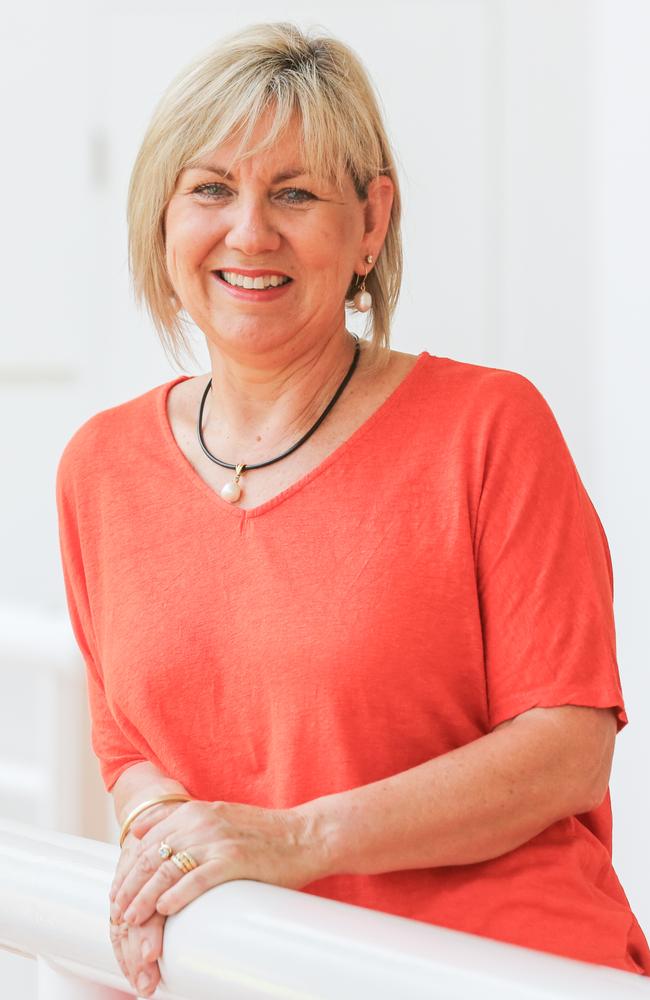NT schools: Primary teacher numbers skewed towards women
NT schools hired significantly more female teachers than men in the past 16 years, with three disheartening themes the likely cause.

News
Don't miss out on the headlines from News. Followed categories will be added to My News.
NT schools hired almost four times as many female teachers as they did men over a 16-year period, despite a national focus on gender diversity in learning environments.
The latest Australian Bureau of Statistics schools data has revealed the Northern Territory’s full-time equivalent teacher numbers for 2006-2022 across government, Catholic and independent schools.
As of 2022, the NT was home to 110 more male teachers across the board since 2006 – over the same 16-year period, 420 more female teachers were recruited to NT schools.

Not only does the ABS data paint a picture of the Territory’s – and country’s – gender divide among schools’ teaching staff, it also highlights the stark contrast in teaching preferences between men and women.
By 2022, the influx of new male teachers was largely in non-government schools, with 84.5 per cent landing roles in Catholic or independent schools.
But just 40.5 per cent of new female teachers worked in non-government schools.
The census data did not identify teachers of any other gender.
When asked about the gender disparity in NT schools, Education Minister Eva Lawler said the government was working to provide the best possible education system for its students and school staff.
“The department is currently undertaking a nationwide and international recruitment campaign focused on attracting and employing classroom teachers to schools in the Northern Territory,” she said.
“It is important to acknowledge teachers of all genders are in demand right across the country, not just in the Northern Territory.
“This matter is the focus of education ministers nationally.”
While Ms Lawler said there were currently 494 male classroom teachers across the Territory’s government schools, the ABS data reveals that is 131 fewer than last year.

Opposition Education spokeswoman Jo Hersey said gender was not the key concern among Territory teaching staff.
“The issue we have here in the Territory is attracting and retaining teachers, full stop,” she said.
“We know that safety and conditions are concerns for teachers here in the Territory, and we get smoke and mirrors from the Fyles government on the vacancy rate.
“We have heard time and time again about the ever-increasing workload on teachers who are doing more and more and dealing with escalating anti-social behaviour.”

Charles Darwin University senior education lecturer Janice Crerar said the Territory’s decline in male primary school teachers came down to a lack of role models, perceived isolation and fears of misconduct accusations.
“In the early 2000s, there seemed to be more of a push for men to go into early childhood and primary education, but since then, in my view, there’s been a bit of backlash generally on men in (traditionally) female roles,” Ms Crerar said.
“There’s more fear from men now in such a strong legislative environment for them being accused of misconduct, particularly when you’re working with young children, and whether it’s early childhood or primary, there’s a lot more physical contact with the child as you teach them.”
She said that contact came down to stepping into carer roles, such as helping young children eat, go to the toilet, or comforting them as opposed to a “hands off” teaching experience in secondary schools.
Ms Crerar recalled her own experience working with children, and said it was not uncommon for kids to “come up and attach themselves to your legs”.
“People are more frightened or it’s more difficult for them to be in those roles,” she said.
Ms Crerar said gender stereotypes continue to hold men back from roles as primary teachers.
“It’s still regarded as women’s work, it’s still regarded as more of a caring profession that women would do,” she said.
“The less children see men in those traditional female roles, the less boys are going to grow up seeing it as acceptable.”




